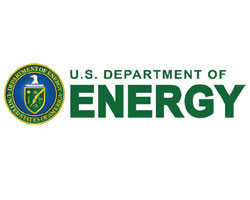
 











|
Signature Sponsor


November 3, 2022 - The U.S. Department of Energy (DOE) has announced $43 million for 23 projects to help communities plan their transition to a clean energy future and improve grid reliability and security. Twenty research projects will focus on increasing communities’ resilience to disruptions from extreme weather and other disasters, and three will focus on building tools to help communities better evaluate and benefit from local energy resources. Researchers will develop and share planning methodologies, tools, technologies, and best practices that can be replicated in communities across the country as they work to install clean energy and strengthen grid infrastructure. Today’s project announcements will help communities secure their energy future and support President Biden’s goals to decarbonize the electricity sector by 2035 and achieve a net-zero economy by 2050. “Knowledge is power, especially when it comes to giving local communities the tools to understand and make informed decisions about their own energy supply and needs,” said U.S. Secretary of Energy Jennifer M. Granholm. “These critical projects will help deliver reliable, affordable energy to every pocket of America—strengthening the safety and resiliency of communities across the nation and improving the quality of life for Americans everywhere.” Communities across the nation have faced increased disruptions in power caused by extreme weather events due to climate change. According to NOAA’s National Centers for Environmental Information, the U.S. has sustained 15 climate disaster events in 2022 with losses exceeding $1 billion each. Overall, these events have cost $30 billion and had significant economic effects on the areas impacted. Power outages can have disastrous effects, shutting down critical services such as water, energy, communications, transportation, and other types of infrastructure. The Renewables Advancing Community Energy Resilience (RACER) funding program seeks to enable communities to utilize solar and solar-plus-storage solutions to prevent disruptions in power caused by extreme weather and other events, and to rapidly restore electricity if the power goes down. The 20 projects selected under RACER will advance innovative approaches to community energy planning and develop and demonstrate resilient clean energy technologies. These projects span over 30 diverse communities from California to Puerto Rico, and include partners from local and state governments, national labs, universities, and nonprofit organizations. A map of the 20 RACER projects can be viewed here. Examples of some projects are listed below:
The Energyshed funding program aims to build data-driven tools to help communities shape their own energy future through better understanding of their current and future energy supply and demand landscape. These three projects will develop tools to empower communities to evaluate the impacts and benefits of locally generated energy ($10 million):
Both funding programs support President Biden’s Justice40 Initiative to ensure that the clean energy economy benefits all Americans, especially those in underserved communities and in areas vulnerable to extreme events that cause frequent energy and power service disruptions. By selecting a wide range of awardees for this research, DOE aims to enable communities across the country to learn from the findings and develop a tailored approach to meet their own energy needs. Learn more about the Office of Energy Efficiency and Renewable Energy, its research in energysheds, and how DOE systems integration research supports the advancement of an affordable, reliable, and resilient clean energy grid. |
 








|